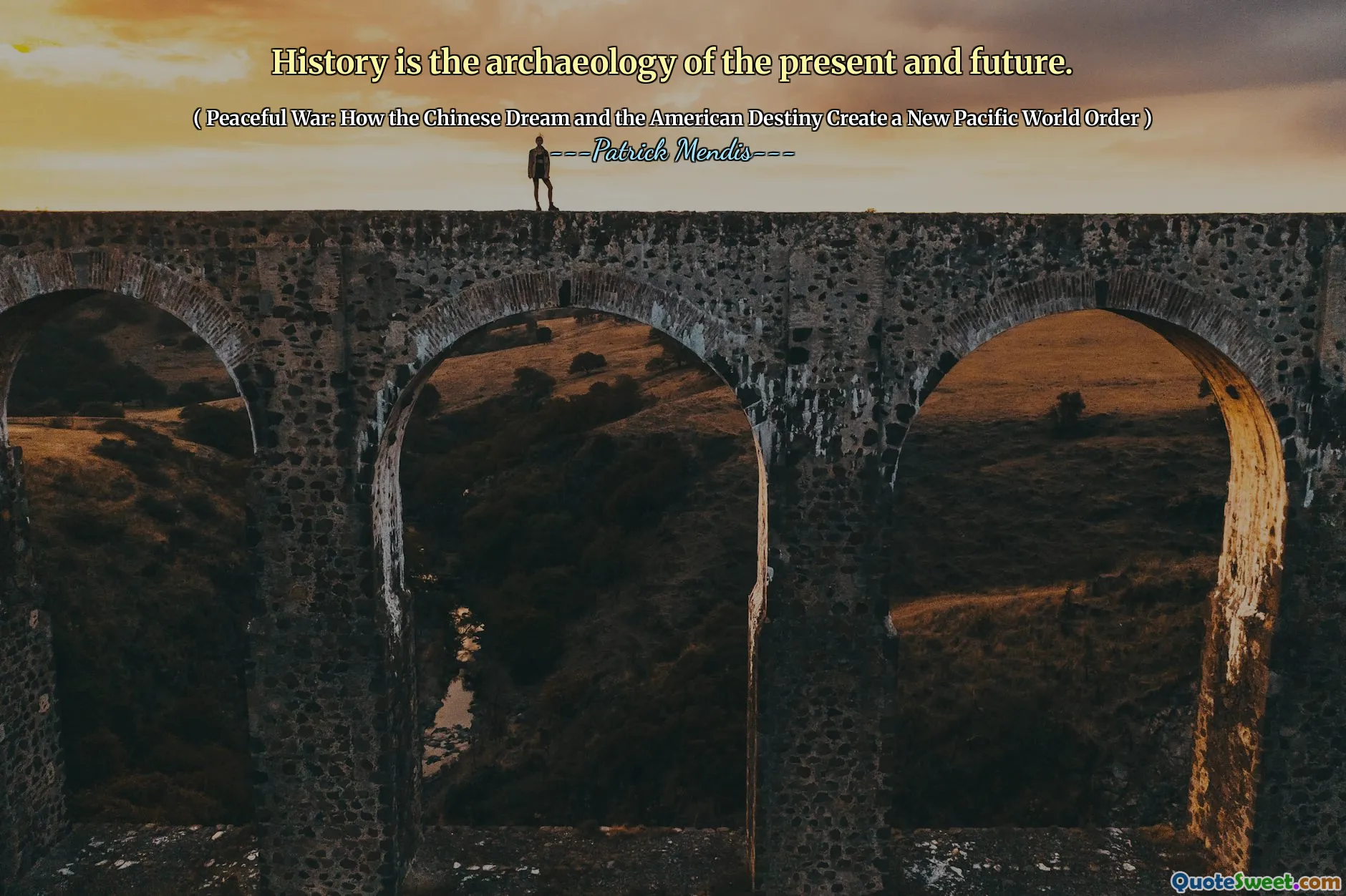
History is the archaeology of the present and future.
This quote encapsulates a profound understanding of history's role in shaping our understanding not only of what has happened but also of what might come. By depicting history as the "archaeology of the present and future," it suggests that history is not merely a record of past events; rather, it is a dynamic framework from which current realities and future possibilities are excavated and interpreted. Like archaeologists who uncover layers of soil and artifacts to reconstruct ancient civilizations, historians peel back layers of time to reveal patterns, causes, and connections that inform our decisions and predictions.
In the context of the book "Peaceful War: How the Chinese Dream and the American Destiny Create a New Pacific World Order," this perspective gains added significance. The quote underscores the intricate interplay between historical narratives and contemporary geopolitical strategies. History, in this light, becomes an essential tool for navigating the complex relations between nations — understanding where they come from to appreciate where they might be headed. The future is not separate from history; it is deeply embedded within it, awaiting discovery through thoughtful analysis of the present conditions.
Moreover, this approach invites a mindful engagement with history, encouraging people to consider how today's actions will become tomorrow's artifacts, influencing future interpretations and outcomes. It highlights the responsibility inherent in how we act and document our era, knowing that it serves as the groundwork for future generations' understanding. Ultimately, this quote challenges us to view history as a living, evolving process integral to constructing both identity and destiny.






